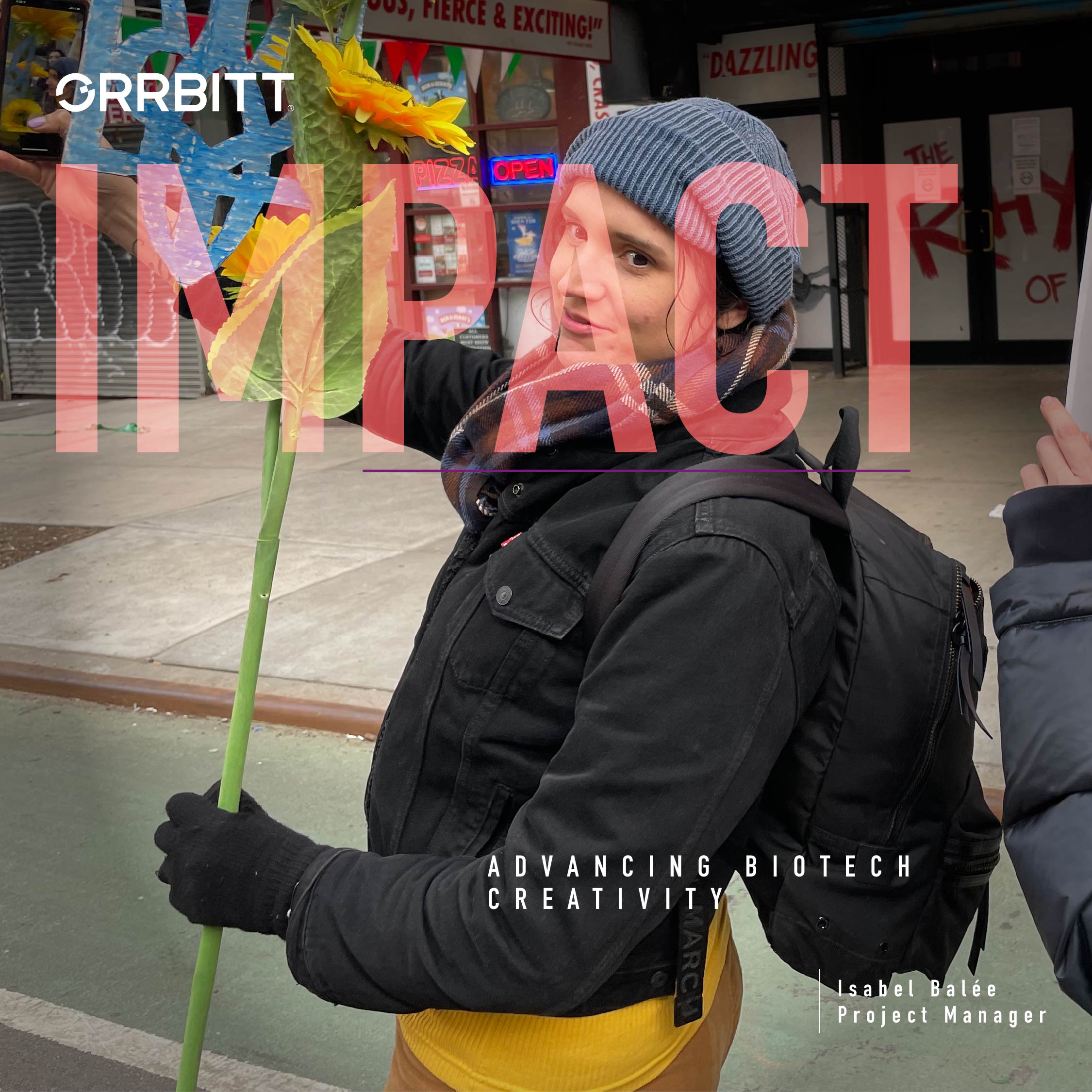Isabel’s literary and creative background has led her to many fruitful opportunities in the professional world. Along her career journey, she has discovered a passion for driving organizational goals as a project manager. With many skills learned along the way, she is happy to have landed in management positions that require leadership skills and critical thinking. After graduating with an MFA in Literary Arts from Brown University, she served as creative writing instructor in higher education, and worked on a poetry manuscript that was published in 2021. Originally from New Orleans, and with roots in Northern Brazil, she lived in the Bay Area for a few years before settling in Philadelphia. In her free time, she enjoys focused activities like playing in a local chess club, swimming, and having an inconsistent meditation practice.
Q: What art made the most impact early in your life? And what art — any medium — moves you today?
A: For me it was always literature. I spent much of my childhood in my room getting lost in novels. I was intrigued once I discovered poetry. It always seemed so mysterious, and still is, even though it’s been a huge part of my life for so long now. I am still chasing the earliest feelings I had about poetry – being moved by the musical quality of language, and entering into a new word built on language alone.
Q: Would you say that you have always had a clear vision for your life?
A: No, my life usually doesn’t go according to plan. I try to stay open to unexpected possibilities. I learn and grow by having new experiences.
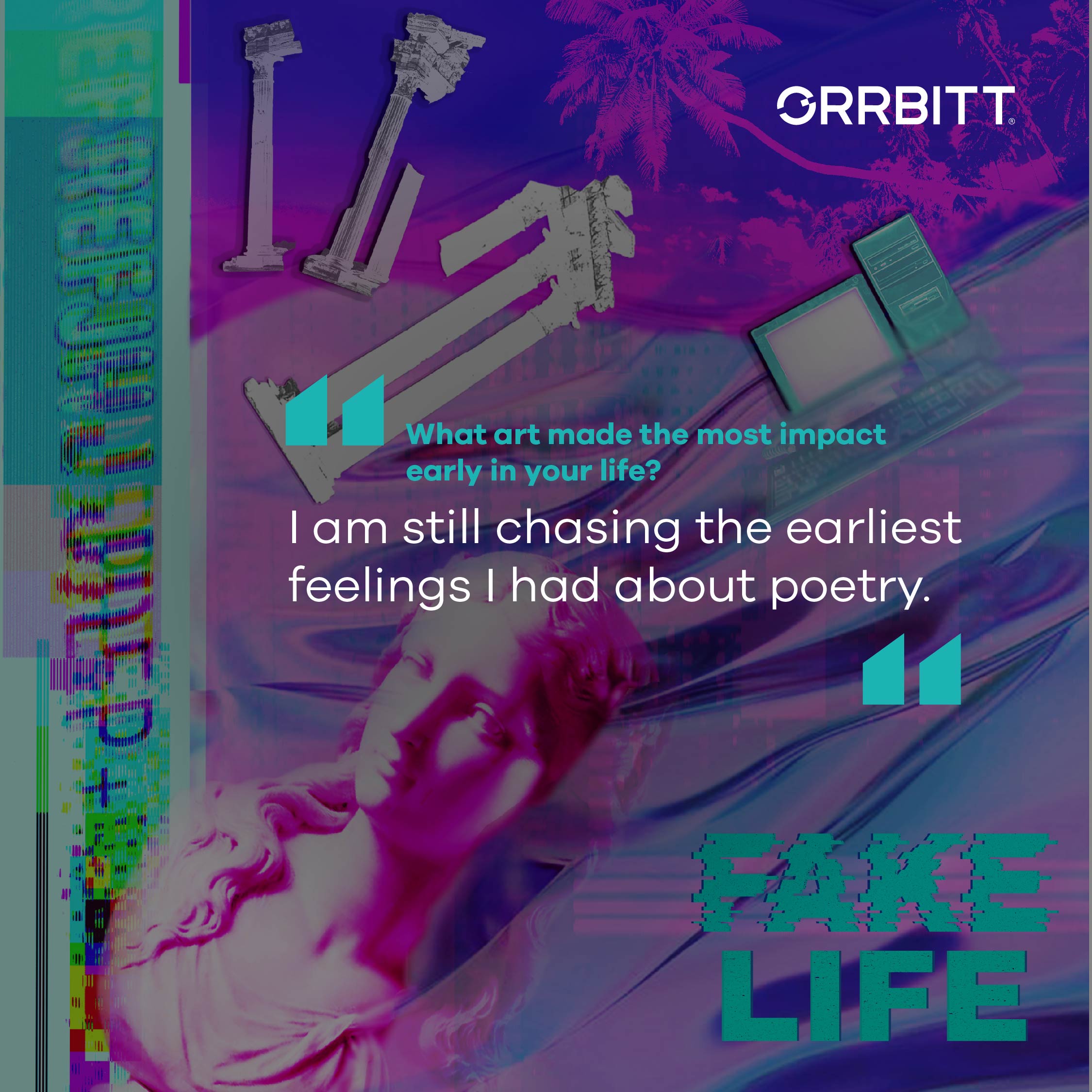
Q: What’s the coolest part about the cross section of art & science?
A: Both are creative fields. Both are also technical fields.
You don’t ordinarily think of science as artistic, but it seems to involve creativity, spontaneity, experimenting with new methods, trial-and-error, etc. I go through the same process in my own work.
Similarly, art is technical. There are formulas in art that have stood the test of time. 5 act play structures are still used – pay attention to any Blockbuster movie and you’ll notice they haven’t deviated much from early Greek tragedies. And poetry is one of the most rule-based art forms in history! Sonnets, sestinas, villanelles, the list goes on.
I think humans are drawn to guidelines when reading or experiencing art. I have some of my own technical checkmarks I think about when I’m writing – how is the balance between abstraction and concreteness? Am I showing or telling? How is the lyric? The balance between form and content? When I’m doing visual art, I take into account compositional rules like the rule of thirds, perspective rules like vanishing points, and proportional rules that are necessary to use when drawing human anatomy and faces. It’s all math and science!
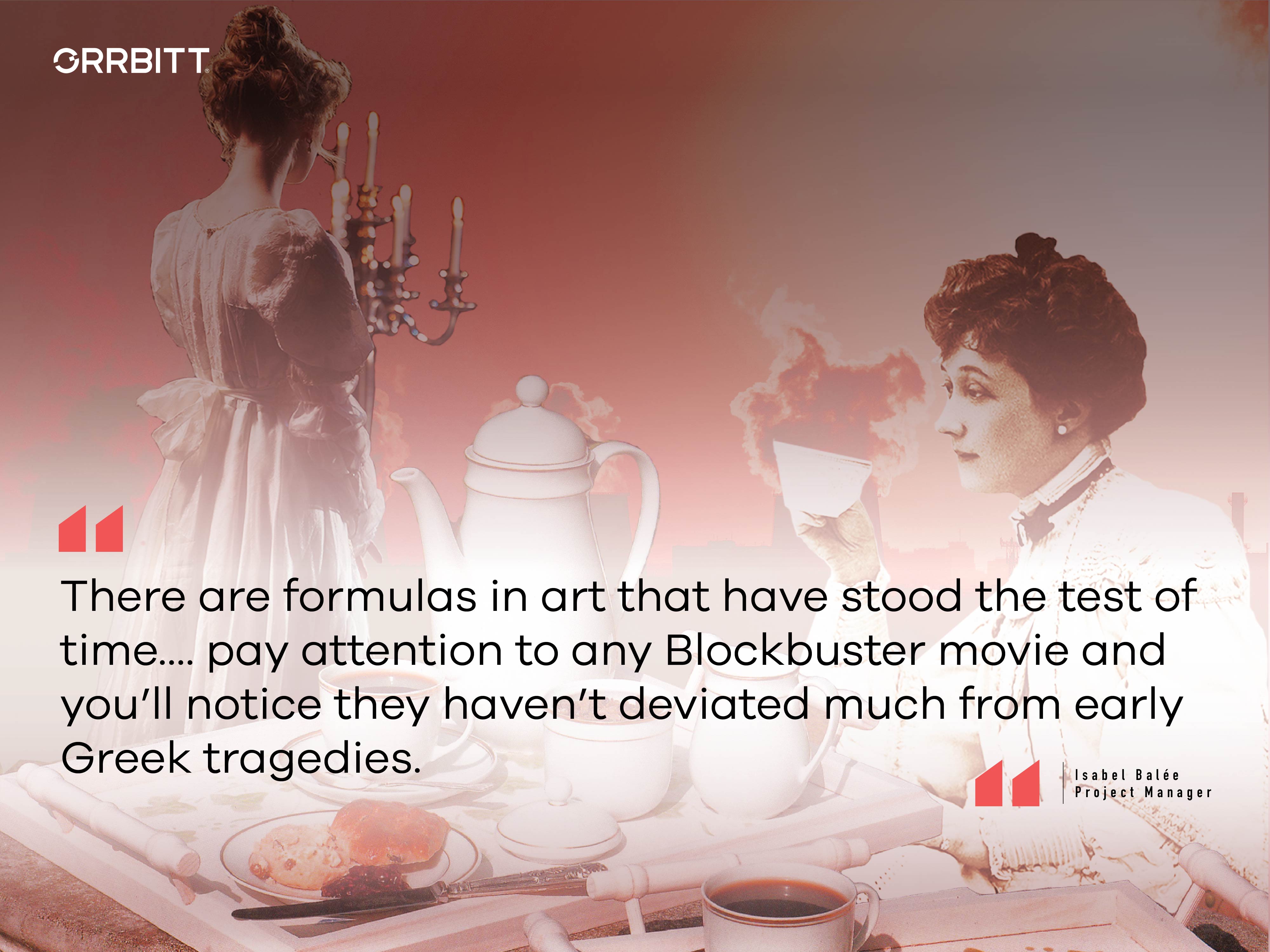
Q: What medical science event / discovery / milestone impacted you whether or not you even knew it at the time? And you can’t say Covid.
A: Unfortunately my answer is a family emergency. My brother had a random brain bleed summer 2021. It was super scary, but they ended up finding cavernomas he was apparently born with. Luckily it’s not life-threatening, but it did require surgery in order to reduce his risk of a stroke. I don’t know what they did exactly, but the doctor said the residents were excited to do this surgery because it’s so rare. Apparently it was a new type of surgery with tools they don’t normally use. I wish I could go into the specifics, but I’m not too sure! Pretty amazing.
Q: Working with burgeoning companies pioneering futuristic technologies, what personal satisfactions arise after the launch of a new biotech brand / website / presentation / scientific graphic?
A: I love thinking about how much the project transformed from conception to completion. Ideas evolve, new ideas come into play, timelines shift. It’s all a testament to how collaborative the process is. There’s so much to pay attention to when we’re working between arts and sciences, which is why it’s so satisfying to see the final product and revel in our success.
Q: What have you gleaned from the life sciences industry, and how has it altered your outlook on the future of humanity?
A: There’s so much that I don’t know and I don’t totally understand. But I love the conversations that happen when we’re working with a new company for the first time. Usually they’ll give us an overview of their science, and we’ll give them an overview of our design process. It’s a beautiful intersection!
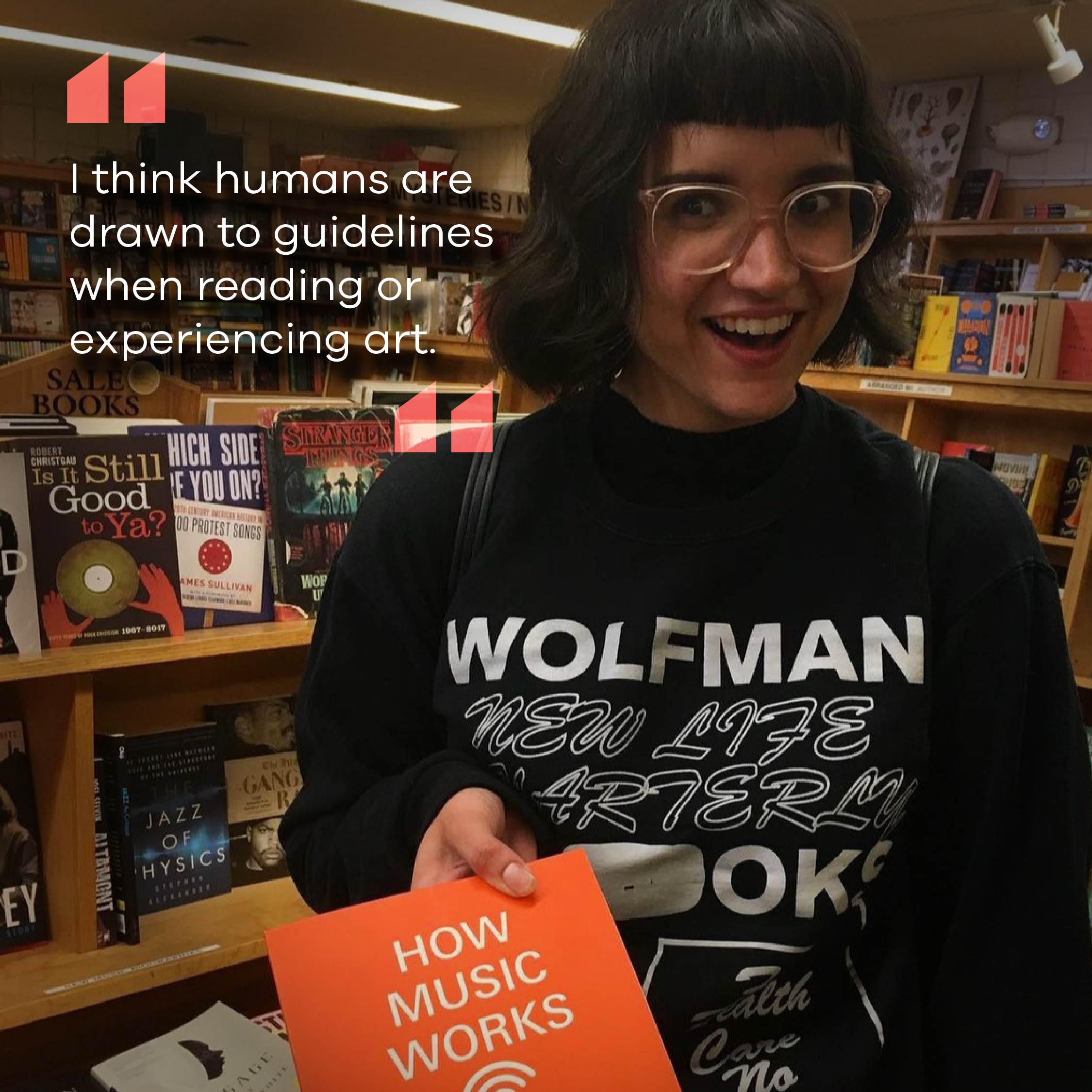
Q: Everyone gets “writer’s block” or “creative funk”. What’s your slump-buster method or approach?
A: I usually have to pick up a different medium when I’m stuck in another. Feeling blocked in my writing lately, I’m spending more time drawing and painting. It’s fun because I’m not trained in the visual arts – I’m always learning new things and I don’t get tired of it, which sometimes happens with writing, since I’ve been doing it for so long. I’m practicing drawing every day, learning new techniques, and messing up along the way. But nobody has to see it. When I get bored of that, I’ll find my way back to my writing. I’m actually at a point now where I’m trying to combine the two.
Q: In a state of creative output, what are you listening to?
A: My music taste is vast, I genuinely enjoy something from every genre. When I’m revising or fine-tuning something, I need silence. But when I’m experimenting and playing around … lately I’ve been listening to a lot of punk music. On my playlist is Metz, IDLES, Thee Oh Sees, Misfits, Bad Religion. I also listen to a lot of world music … lately I am into Cesaria Evora, Maria de Barros, Lhasa de Sala. I also like more chill stuff like William Basinski, Burial, Mount Kimbie, Grouper… the list goes on. I love music!
Q: How do you fuel your creativity in other aspects of life?
A: The first thing that comes to mind is being in conversation with other artists. Most of my friends are artists or writers in some capacity, and I’m continually inspired by the work they’re doing. Right now I’m paying attention to some of my peers who have switched art forms in adulthood. A few of them went from having mostly literary practice to a visual one. I’m trying to do the same thing. I have total imposter syndrome about it, but then I remember how these folks have committed to this new path, continued to practice and mess up, and are now enjoying the success they’ve had from sticking to it. It all takes practice. Maybe it’s true that some people have an innate gift for creativity, but I actually think talent stems from interest and dedication. The best artists are those who are willing to invest a lot of time practicing, learning, and mastering their craft.
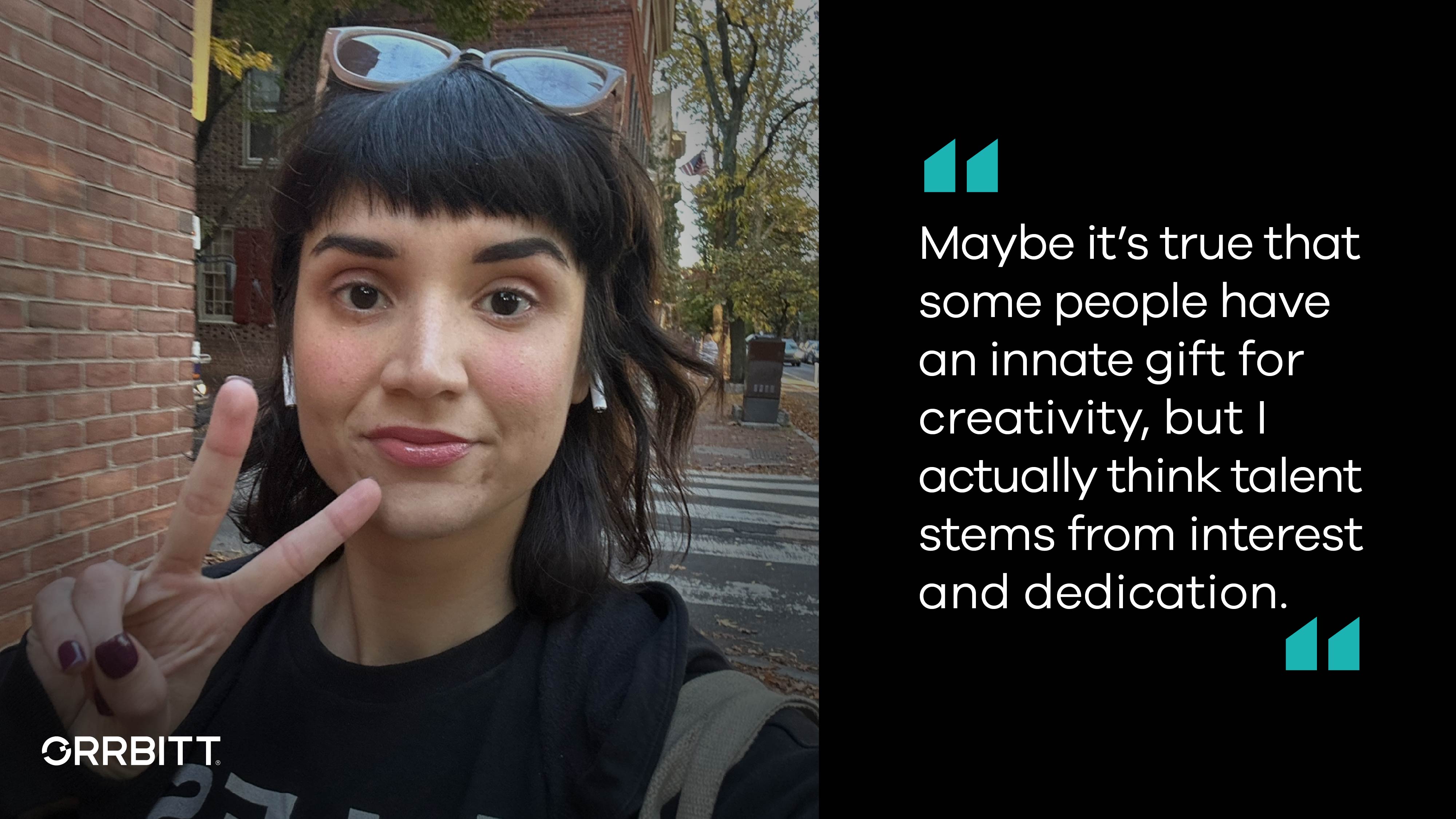
Q: Aliens, yes or yes?
A: YES!
